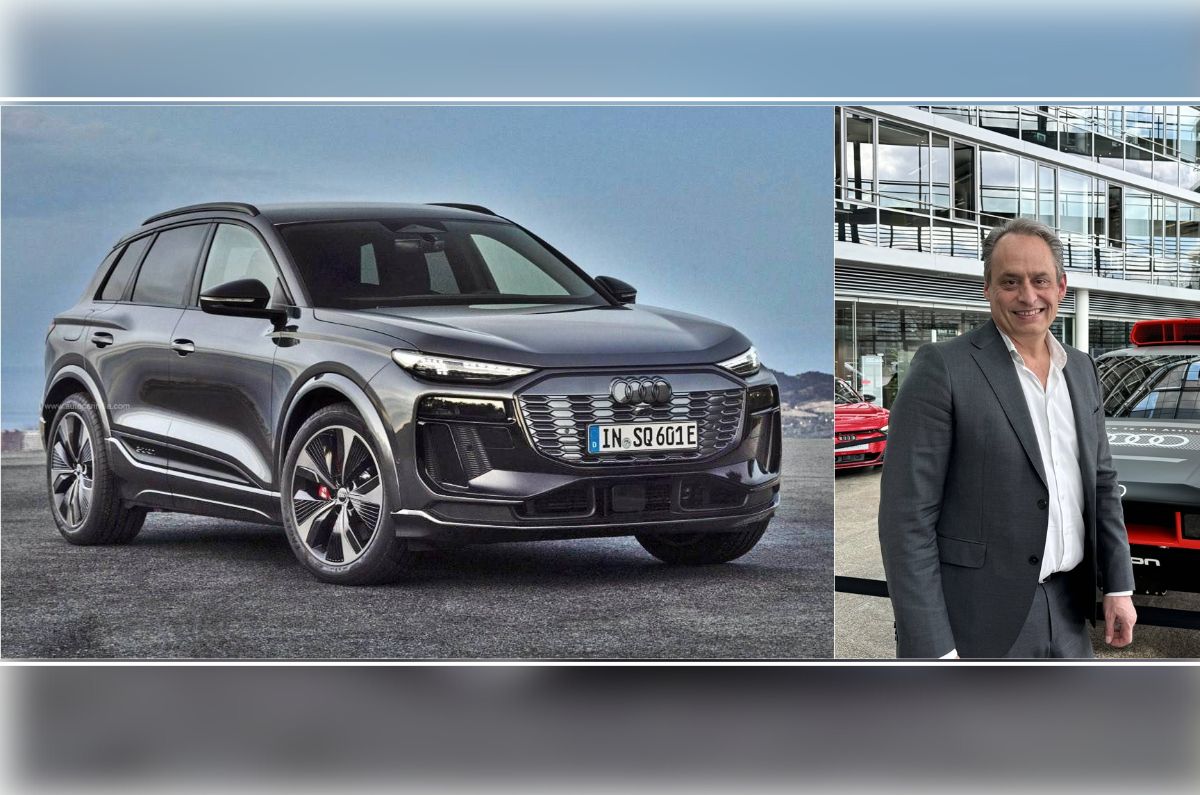Wider EV product portfolio at more accessible price points will be key for such an ambitious target.
Andre Konsbruck, vice president of overseas sales at Audi AG believes that more than 50 percent of luxury cars sold in India by 2028 will be electric vehicles and hence the German carmaker is very actively looking at localising electric vehicles in the country.
Speaking on the sidelines of the 2023 annual conference in Ingolstadt on Tuesday, Konsbruck told Autocar India that he knows that the Government of India wants to achieve 30 percent electric vehicle penetration for cars by 2030, but he believes that in the luxury segment, EV penetration will be much higher at 50 percent by 2028.
EV penetration in luxury segments
“In the premium market, the penetration for EVs will be faster. We believe that the tipping point will come around 2028, when the market crosses 50 percent EV share. I believe in the D segment and in the top end of luxury cars, it may be even earlier. That is our planning premise,” said Konsbruck.
He elaborated that given the high import duty structure in India of around 15-35 percent (for locally assembled vehicles) versus 70-110 percent (for imported models)- with that big gap, “you are only competitive if you locally produce,” he added. “We are currently evaluating different scenarios (for assembling EVs in India), I hope that we will be able to make a decision soon,” asserted Konsbruck.
Autocar India learns that Audi is currently studying both the possibilities of either utilizing the VW Group’s MEB platform for smaller compact EVs and also its own premium modular EV architecture PPE, which it shares with sports car brand Porsche.
Audi India entered the luxury EV space with e-tron SUVs in 2021, but has remained a sub-optimal player due to completely built imports. Its portfolio only comprises models costing well above Rs 1 crore (ex-showroom), which is why its German rivals – Mercedes-Benz and BMW – and Volvo sell much higher volumes of EVs, some of which are much more competitive due to local assembly.
How Audi aims to achieve 50 percent EV sales
The first step will be the introduction of more products. The company just globally unveiled the new Q6 e-tron based on the all-new PPE architecture that’s supposed to mark Audi’s next phase of electrification. As we have reported to you already, the Q6 e-tron is India-bound by late-2024 or early-2025. It is, in fact, one of 20 new models – ICE and EV combined – that Audi plans to introduce globally in the next one year, and “some of these models will also be headed to India,” said Balbir Singh Dhillon, head of Audi India. “With availability of more products, the EV penetration will go up.”
Apart from localization initiatives, Audi also needs more EVs across a wider price band, especially in India. The company has stated that there will be a new entry-level electric SUV positioned below the Q4 e-tron which is currently the entry point to Audi’s EVs, and this could very well be on cards for India as well.
“We need to have a basket of cars available globally to choose from. The availability of products is widening, and we have to combine demands of customers in India and what we have globally and choose some of these models to be brought to India,” said Dhillon.
Challenges in EV adoption
Currently, infrastructure is still the biggest hurdle for wider adoption of EVs. In fact, very few customers actually rely on public charging infrastructure. As Dhillon accepted, “We began with installing charging facilities at all our dealerships, but we now see very few customers actually use it. Most charging happens at home.” And herein lies a big challenge as there have even been cases of customers facing challenges in the installation of home chargers in high-rise societies.
Audi, however, is committed to electrification – the company has already outlined plans to be an all-electric brand globally in the next ten years, and while India catches up on EV adoption over the next few years, the company will maintain a balance of both ICE and EVs in India. “We will be flexible towards ICE and BEVs in India,” said Dhillon.
Also See:

